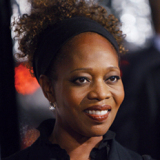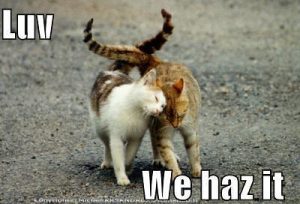The Duchess, Her Maid, The Groom & Their Lover: An Erotic Novel
by Victoria Janssen
Published by Spice
 Please note the title and study the cover a bit. Does that say “romance novel” to you? Me, neither.
Please note the title and study the cover a bit. Does that say “romance novel” to you? Me, neither.
And yet, despite the absence of the word “Harlequin” anywhere on the cover, on the copyright page, on the “coming attractions” back matter, apparently, Romancelandia thought this was a romance. I don’t know why, unless Romancelandia simply has no history with pure erotica.
There is a difference between romantic erotica and pure erotica (aka could-be-porn-if-that’s-your-definition) and perhaps Ellora’s Cave has just trained Romancelandia to read “romance” or “romantic erotica” where they see “erotic novel” or “erotica.”
I don’t know how this could have been mistaken for a romance.
Moving along. Jessica, over at Racy Romance Reviews, reviewed this and while her review wasn’t necessarily favorable, it was academic (’cause she R 1) and in no way (I thought) insulting. She also admitted that she didn’t have much experience with whatever “pure” erotica really is.
I wanted to read this book, but balked at paying $11.30 for the ELECTRONIC book, so someone took pity on me and sent it to me, requesting that, if possible, I review it because that person was interested in my opinion (though heaven only knows WHY!).
My opinion is that I can’t finish this book.
Why?
The nastiness that went on concerning a liveblogging “review” incident between Dear Author and Smart Bitches (NOT linking). I didn’t read the transcript, so I am not speaking to whether the liveblogging was nasty or not, but the comments on the thread really, really disheartened me. It destroyed any enjoyment I might have gotten out of it and made me want to pick nits where there were no nits to pick.
I read 40% of the book before I simply had to put it down, so I feel very cheated and I’m going to address others’ complaints of the book that apply to what I read and comment on those, then I’ll pick the two very big nits I actually did have.
COMPLAINTS:
1. Nobody could figure out the setting, but thought it might be somewhere in 17th-18th Century France.
Okay, first, it’s erotica. Have we established this fact? It doesn’t need a setting. It’s a fairy tale and the descriptions were such that I envisioned a Neuschwanstein-type castle.

As long as the descriptions of the castle let you know these characters were amongst lush, and candles were the major source of light, and the clothes were voluminous and bulky, the exact place and time weren’t important.
2. That the sexual situations were totally ridiculous.
Yeah, they sure were. It’s erotica. Have I mentioned that? The “plot” of escaping the abusive-cum-murderous husband is a lot stronger than in most erotica I’ve read, but still more flimsy than that of a romance novel. I suppose if one were reading it as if the plot were the strongest element, I could see how one would be tempted to want to call it “romantic erotica” and be disappointed in the result, but let’s get real: erotica doesn’t need an actual, fleshed-out (heh) plot.
3. That Camille’s reasoning for escaping her abusive-cum-murderous husband RIGHT THEN was flimsy.
Actually, I thought that part was very well set up and the strongest point of the plot. Camille was on the last upswing of the abusive-husband cycle and she knew it. I’ve volunteered at battered women’s shelters. There comes a do-or-die point (literally) for the woman to run and she usually knows when that is. Whether she runs or not…well, that’s up to her.
4. That there just happened to be brothels everywhere along the path they took on their escape route, doubling as inns.
Yeah, there sure were. It’s erotica. Have I mentioned that?
5. There are eunuchs! In a place we think might be 17th-18th Century France. Eunuchs! What the fuck?
Fuck, indeed and precisely. It’s erotica. Have I mentioned that?
STRENGTHS:
I think Jessica summed it up best when she said this:
In some ways, despite the sexual sadism of the Duke, this book offers a very positive view of sex. Sex is the go-to coping strategy for most of life’s problems: Need an heir? Feeling stressed? Husband trying to kill you? Lonely? Bored? Want to show someone you have power over them? Need a place to stay for free? Want to escape those thugs? Need a favor? Want to convince someone to ally with you? Want to thank someone? The answer is sex, sex, sex, sex, and more sex.
That was its strength and its purpose. Why? Because it’s erotica. Have I mentioned that?
Okay, so now that we’ve got all that out of the way, here was my problem with what I read:
NIT ONE:
The cover. Come on. It’s gorgeous, absolutely breathtaking all textured and ripe with hot redhead right there in the center of groping hands and a pearl necklace around her neck (make of that what you will).
Except…Camille is described as having black hair with gray streaks.
FAIL.
NIT TWO, which is the genuine weakness of the book:
The sexual logical inconsistencies. “What?!?!” you cry. “You just finished telling us it was erotica and don’t get hung up on the ridiculousness of it. What could you possibly mean?” Not that way, you silly goose.
1. Camille needs an heir or her husband will kill her. Her husband is shooting blanks. She summons the groom to attempt to impregnate her because any child of his could pass for her husband’s. Okay, so far so good. Sounds like a plan. But immediately after finishing with the groom, she is summoned to her husband’s wannabe de Sade dungeon.
[Her husband] had to fuck her at least once, in case she had managed to become pregnant that afternoon.
Okay. We know she doesn’t want to, but we get the timing issue. But then he doesn’t. And not only does she not worry about this, it doesn’t even occur to her that she missed her chance to cover up her possible switcheroo.
2. Camille’s been married to this dude for 20 years and has been exposed (as a spectator and submissive) to every sexual deviance possible because he’s sick and twisted that way. And yet, this night, the relatively mild antics are…different? And now she’s aroused by them? After 20 years of debauchery? Really? Just now? No, I don’t believe it.
a. She has eunuchs who are her bodyguards and, ostensibly, sexual servants. She has an ivory carving (dildo). In 20 years of exposure and being aroused (for the first time!) that night, she finally—FINALLY!—asks her eunuchs to pleasure her? No, I don’t believe it.
b. In 20 years of exposure and forced sexual obeisance, she’s never given head until this night? (That’s the way I read it, anyway.) No, I don’t believe it.
In other circumstances, she might have enjoyed tasting so large a cock, but not in front of the duke.
So…has she or has she not experienced pleasure before? Has she or has she not given head? The implication before this passage is that she had (by force), but at this moment thinks about how delicious it might be if her husband wasn’t watching? Say what? No, I don’t believe it.
c. It’s discussed that she was never unfaithful to her husband—in 20 years!—and just that day with the groom was the first time for seeking her pleasure elsewhere and the first time, in fact, that she’d known pleasure at all. No, I don’t believe it.
d. Once the entourage takes to the road, it’s as if everything is a new experience for her, as in, she never knew X activity existed. She becomes lovers with her maid and the author makes a point of letting us know that she hasn’t had a woman. Really? In 20 years of Duke Debauchery and forced sexual obeisance and his own propensity toward voyeurism and she’s never done a woman? No, I don’t believe it.
I think I would have had a problem with Camille’s contradictory sexual history anyway, but I don’t think it would have made me simply put the book down and not want to pick it up again. The unpleasantness surrounding it combined with that simply destroyed any enjoyment I might have had.
Quite simply, it was a chore to read, which frustrated and disappointed me to no end because it was a book I wanted to read and expected to enjoy.
Since this was given to me, I’d like to pass it along. First person to email me gets it.

 Please note the title and study the cover a bit. Does that say “romance novel” to you? Me, neither.
Please note the title and study the cover a bit. Does that say “romance novel” to you? Me, neither.
 Currently reading. Excellent, excellent work.
Currently reading. Excellent, excellent work. Started. I wanted to read this book but then saw the ebook price ($11.30! for an ELECTRONIC book!!!), bitched about it, then was offered a copy if I would review it, which I will. I will admit, however, that I find myself reading it through the filter of some blogging unpleasantness elsewhere.
Started. I wanted to read this book but then saw the ebook price ($11.30! for an ELECTRONIC book!!!), bitched about it, then was offered a copy if I would review it, which I will. I will admit, however, that I find myself reading it through the filter of some blogging unpleasantness elsewhere. Started. This seems more of a visual novel to me (I’m a visual reader) and I have to have some quiet time to do it. Between the DDJ (damned day job) and the Tax Deductions, finding sufficient quiet time has been difficult.
Started. This seems more of a visual novel to me (I’m a visual reader) and I have to have some quiet time to do it. Between the DDJ (damned day job) and the Tax Deductions, finding sufficient quiet time has been difficult. A couple of days ago I blithely typed, “
A couple of days ago I blithely typed, “



 Harlequin. I *lurrrrve* you.
Harlequin. I *lurrrrve* you.